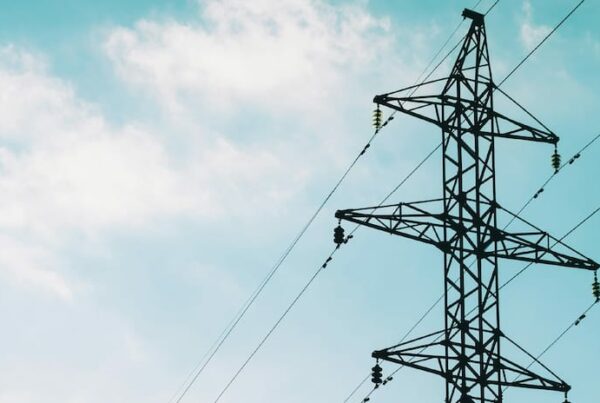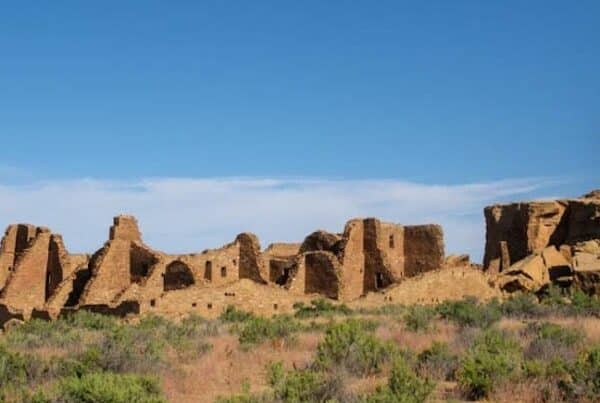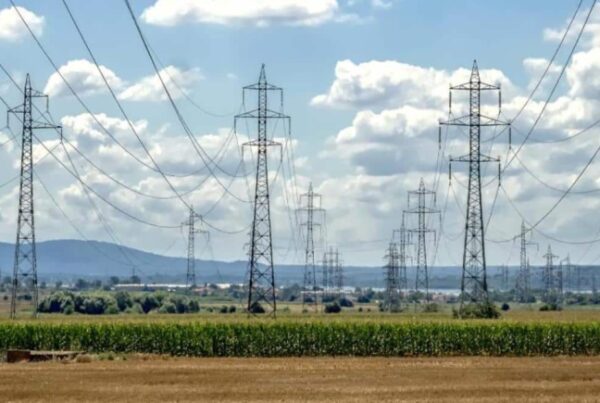This blog series covers the monthly La Plata Electric Association (LPEA) Board of Directors meetings. We’re tracking the board for transparency and accountability, as well as to stay current on their renewable energy initiatives. Find past and future spotlights here.
This January Tri-State announced their long-anticipated Responsible Energy Plan!
The first announcement described Tri-State’s intention to close Colorado and New Mexico coal assets ahead of schedule. The second announcement added in clean energy goals and a pledge to increase member flexibility.
The Responsible Energy plan shows that Tri-State is finally starting to shift their coal-intensive portfolio, and is a great first step towards a cleaner energy future. However, Tri-State still has a long way to go before they become the forward-thinking utility they claim to be.
Here, we’ll break down what’s in the plan, what’s notably absent, and some of the things we’re still hoping to see from Tri-State.
What’s in the Responsible Energy Plan:
1. Coal Retirements & Emissions Reductions
- Tri-State intends to close Escalante Station in New Mexico by 2020, and the Craig Station and Colowyo Mine in Colorado by 2030
- Tri-State will work to achieve a 90% reduction in carbon dioxide emissions across Colorado generation facilities, and will strive for 100% clean energy in Colorado by 2040. They have also cancelled all their coal expansion projects
- Still no retirement plans for Tri-State’s coal generation facilities in Wyoming and Arizona
2. Increased Renewable Energy
- Tri-State generates almost half of its power from coal, and a mere 9% of their total load comes from wind and solar energy
- The Responsible Energy Plan would bring 1 gigawatt of renewables onto the grid and increase Tri-State’s renewable energy generation from wind and solar by 50%
- Uncertainty about how renewable generation will affect rates, especially given Tri-State’s $3 billion debt
This is HUGE news, and a big step forward! Everyone who has participated in these issues over the last few years should be proud of Tri-State’s new goals.
But this plan still doesn’t have everything we’re looking for. While it’s great that Tri-State is moving towards reducing their carbon emissions, there are still other concerns that need to be addressed.
What Still Needs to Change:
1. There’s NO Local Generation Flexibility
Even with this new plan, we are still bound by Tri-State’s restrictive contracts. LPEA’s 5% cap is essentially maxed out; without changes to the contract there aren’t any opportunities for local projects. Why is Tri-State still keeping LPEA from working directly with member-owners on increasing local renewable options?
Tri-State announced that they are working to increase contract flexibility, and expect recommendations to the Board by April. At that point, deliberations will have been happening for a year with practically no updates to members. And even with all these claims of flexibility, Tri-State still has not released their moratorium on issuing buyout numbers, and they are continually delaying working with LPEA on its restrictive contract.
Increased local generation and flexibility are crucial pieces to energy transition– without them local communities will simply not reap the rewards of a new renewable economy, such as local job creation and revenue boosts.
2. There’s NO Robust Transition Plan for Impacted Workers and Communities
Tri-State announced that they will work with local and state leaders to help support impacted workers and communities, but there are no public details about this plan.
Even though the writing has been on the wall for coal for years, Tri-State had always doubled down on the fossil fuel, making false promises that the fossil fuel was going to be around forever. Then, almost overnight, Tri-State announced these coal plant closures without any dialogue with local communities. Now these workers across Colorado and New Mexico are looking at an uncertain future.
Tri-State has a chance to do what’s right and live up to the promises in their announcement. We want a robust, transparent plan, and for Tri-State to work with impacted communities, legislators, and other leaders to support a just transition away from coal.
3. There’s NO Local Collaboration or Cooperation
A big problem in the Responsible Energy Plan, which is indicative of the issues with Tri-State’s leadership structure in general, is that Tri-State didn’t even let its members participate in the plan.
Without these local voices Tri-State couldn’t fully consider both the desire and opportunities for renewable resources in communities like ours. Tri-State will be constructing their new renewable facilities soon, and two of those projects will be in Southwest Colorado. Unfortunately, instead of using local solar installers here in our community, Tri-State will be using a German-owned company based out of Boulder.
Moreover, Tri-State has not been adhering to the Cooperative Principles, a set of guidelines for cooperatives. They do not respect member coops’ Autonomy & Independence by restricting members’ ability to develop their own resources and generation. And, instead of allowing Voluntary and Open Membership, Tri-State piles on mountains of legal battles for co-ops who want independence. Cooperatives ought to be able to terminate their Tri-State memberships and pursue other avenues of generation if they decide that is what’s best for their members.
And, in the midst of all this, Tri-State is still seeking federal regulation! They are forging ahead with their application despite numerous complaints, concerns, and unanswered questions from member cooperatives, the Colorado Public Utilities Commission (PUC), and state legislators.
The Responsible Energy Plan is a great first step, and we applaud Tri-State for finally stepping up to the plate and moving towards a responsible energy future. But, as we’ve seen, there are still major flaws in the plan.
We’ve been working for clean, affordable, and local power here in Southwest Colorado. The Responsible Energy Plan still only meets one of those requirements.
There needs to be more opportunities for local generation so that our economies right here can benefit from the new energy landscape. Colorado energy decisions need to be made in Colorado. Tri-State must submit robust transition plans for impacted workers and communities. And Tri-State needs to respect our autonomy: if a co-op wants to be independent there should be clear, straightforward channels to do so.
Even though there is still work to be done, this announcement is a huge victory for the air we breathe. Everyone who has helped move LPEA towards a clean energy had a hand in Tri-State’s announcement and should be proud of this step forward.
2020 will be a big year for LPEA- stay involved and make sure your voices continue to be heard!
UPCOMING MEETINGS:
Next LPEA Meetings:
February Board Meeting: Wednesday February 19th at LPEA Headquarters. Public comment is at 9am.
Call or email your LPEA Board Directors.
(Hover over your neighborhood for contact information!)




